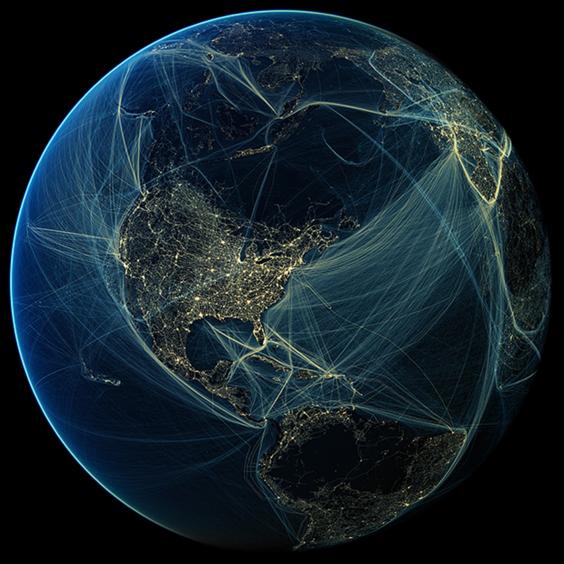Conclusions
There's a limited amount of time in each day, and with a busy schedule, it's unfortunately not possible to watch every single episode of TV or movie, to listen to every song or read every book that touches a topic relevant to the Anthropocene. When human impact stretches from climate change to animal extinction, to artificial intelligence, body augmentation and virtual reality, there's almost too many sources too look at, and never enough time to view them all.
What I learned from this project was that my initial beliefs were correct. The media we consume seems to directly challenge our notion of what the limits of our own power are. The stories we tell have to be negative, it seems, or else there's no story. No great challenge for our protagonists to overcome, or moral crisis for them to face. That's not to say that there aren't positive stories out there--I'm sure there are--but perhaps they aren't as easily accessible, because we as a society don't want to read stories where everything is okay from start to finish. It's uplifting to read a real story about a drug that can help treat cancer patients, but in a fictional story, we want there to be a struggle that's going to keep us invested.
When it comes to the bigger topics, like genetic engineering and artificial intelligence, I think I've learned that we have a unique fear of ourselves. Humans are not ready to embrace the kind of power we have over the world. Perhaps it's because many of us believe that we are not the most powerful beings in our own Universe. A different project would focus on the religious influences of climate change denial, for example, or how religion can influence our moral positions on things like artificial intelligence or virtual reality. Maybe a different part of it is a fear of responsibility that many of us have. When something goes wrong, be it a dangerous dinosaur breakout or an ape revolution, we don't want to be the ones to figure out how to fix it, because it's challenging. We're afraid of being wrong, too. That might be the easiest answer to this question. We're afraid of being catastrophically wrong, but may not admit when it's a possibility.
The stories we tell through movies and television, I think, are representative of a larger group consensus on technology and mankind's place in the world. We're afraid of our own power, and are resigned to telling stories of our own failures rather than stories of our success. The Anthropocene is scary stuff, I'll admit--it's a lot to take in. But it's here and happening right now, whether we like it or not, so it's probably for the best if we learn to deal with it and start getting optimistic about how our ingenuity can be used.

No comments:
Post a Comment